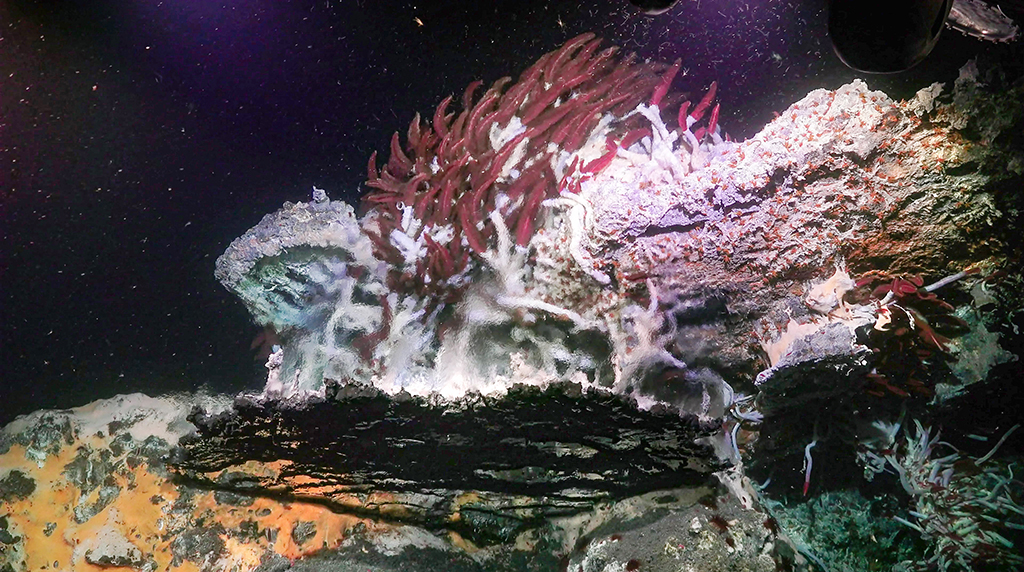June 12, 2019
Hydrothermal systems are unique seafloor habitats that host abundant and diverse microbial communities, but questions remain regarding their energy strategy and metabolic activity. Researchers found that low molecular weight organic compounds such as acetate and methanol were abundant in the hydrothermal sediments of Guaymas Basin in the Gulf of California. Multiple lines of evidence suggested that these substrates were produced largely via biological pathways. They further investigated the microbial metabolism of acetate and methanol and found that both compounds could be used as an energy source to support various microbial processes in the hydrothermal systems.
The entire paper is available online here.


















 back to top
back to top